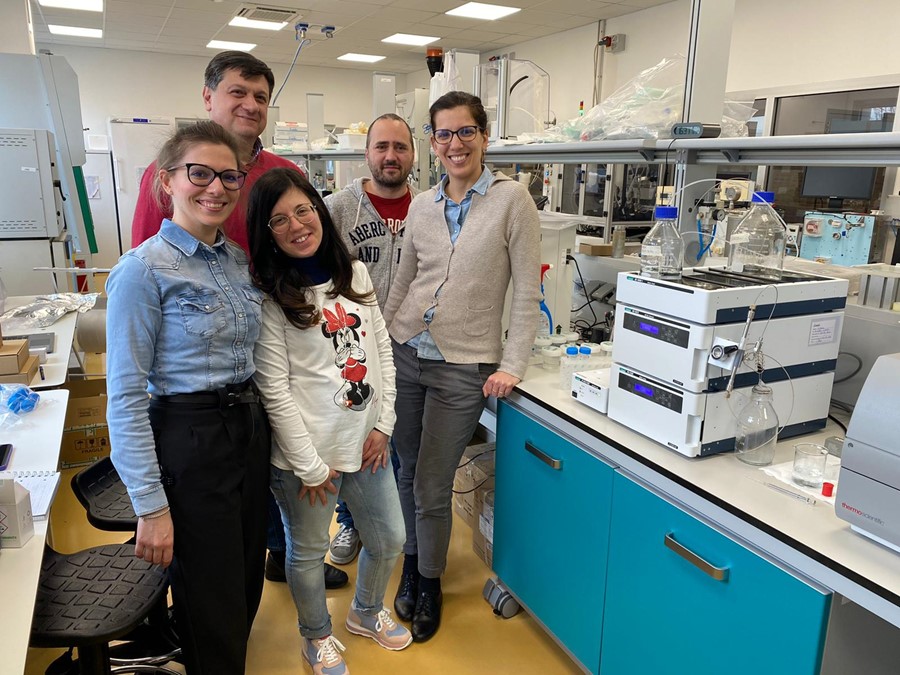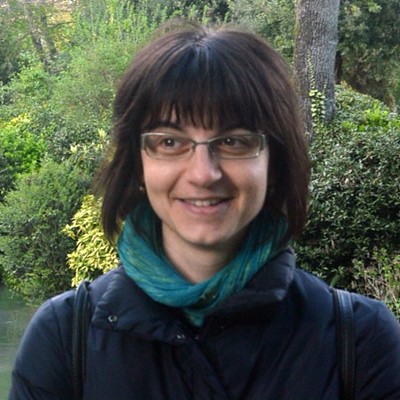Exploring Graphil’s graphene-based water filters with Letizia Bocchi
An interview with Letizia Bocchi, leader of the Graphene Flagship Spearhead Project Graphil, about the future of graphene-based water filtration
Ten years ago, Letizia Bocchi joined the Italian biomedical company Medica SpA seeking challenge and looking to drive innovation. But her laboratory was far from ready when she started – over the years, she built up a state-of-the-art research facility from scratch, piece by piece. Now, she works as a Laboratory Head and leads the Graphene Flagship's Spearhead Project Graphil.
Graphil aims to produce graphene-based water filters for sustainable, low-cost water purification. Beyond Graphene Flagship partner Medica SpA, the Graphil consortium includes Graphene Flagship partner companies Icon Lifesaver (UK) and Polymem S.A. (France), in addition to academic partners Chalmers Institute of Technology (Sweden), Manchester University (UK) and the National Research Council (CNR) of Italy.
What made you choose a career in science?
I have a versatile personality, and I have always been curious, attracted to innovation and discovery. But I was interested in so many different disciplines, and even when I was sitting my final exam in high school, I still couldn't decide what I wanted to do with my future.
In the end, I chose to study biotechnology because I was fascinated by how medicines could change and evolve in the future. I wanted to contribute, in some way, to the development of our society – and biotechnology is a fascinating mixture of life sciences and materials sciences that really appeals to me.
How did you get started on your current research project?
About five years ago, I met Manuela Melucci, researcher at Graphene Flagship partner CNR in Bologna, Italy. She introduced me to graphene, and together, we envisioned how to conjugate graphene with hollow fibre membranes – produced by Medica – to take advantage of the properties of both materials.
Can you tell us a bit more about Graphil?
The main goal of Graphil is to provide safe, drinkable water in a way that is both sustainable and inexpensive. We create filters with hollow plastic fiber membranes blended with graphene. Made of small capillaries with porous walls, these membranes are similar to the ones used for dialysis and retain microbiological contaminants, such as bacteria and viruses. The addition of graphene is essential to enhance the adsorption of chemical contaminants.
Once completed, Graphil filters could be mounted directly on household sinks or portable water purifier devices, bringing safe water directly to the point-of-use.
Why is graphene so beneficial for water filtration?
In our project, we take advantage of graphene's large surface area, versatile surface chemistry and exceptional mechanical properties. The chemical structure of graphene oxide favors the absorption of organic molecules, ions and metals, so we can trap different types of emerging contaminants.
Moreover, the high contacting surface of Graphil filters offers the possibility of combining adsorption and filtration with a lower risk of premature clogging. We hope to contribute to the use of graphene in everyday life products.
How can our society benefit from this?
Water accessibility, safety, pollution are everybody's concerns. These issues are highlighted by the United Nations' Sustainable Development Goals (SDGs) as one of the most important societal challenges of our time. Ensuring universal access to clean water and sanitation with current technology would require double our current efforts.
Graphene-enabled filters could be installed directly on every sink, bringing safe and drinkable water almost everywhere. Furthermore, they can reduce the consumption of bottled water and, consequently, lower plastic bottle waste.
Graphil directly contributes to SDG 6 (clean water and sanitation), and can benefit SDG 13 (climate action), SDG 14 (life below water) and SDG 15 (life on land).
EU drinkable water is highly controlled – it is safe and of good quality – but the number of contaminants released into environmental water is growing day by day. EU drinkable water directives are currently under revision, so it is expected that new thresholds will be introduced for emerging contaminants and that new filtering technologies will be required. With graphene, we could anticipate and respond to these new quality requirements.
What are the biggest milestones in your career?
I don't think about my career in terms of achievements, prizes or gratifications. Instead, every day in the office or lab, I try to move forward, step by step.
When I started at Medica, there was no lab at the company at all. I obtained a small budget to buy the first instruments, and the lab used to look like a garage more than a research facility. Over the years, we built a modern and well-equipped lab with a wonderful team of highly qualified researchers.
Who is your role model?
I would say that many people around me, starting from my husband, kids, family, friends and colleagues have helped and motivated me through my life. I feel some kind of responsibility towards all of them to do my best.
I would also like to mention, Sebastiano Calandra Buonaura, my University supervisor at the University of Modena and Reggio Emilia, Italy. He is a modest, wise man with a noble soul. He taught me the value of knowledge and culture, and the importance of study each aspect of life in depth.
I'd like to give a special thanks go to the CEO of Medica, Luciano Fecondini, the manager of our Water Division, Marco Fecondini, my boss and R&D Manager, Giuseppe Palumbo, and my father and process engineer, Andrea Bocchi: their experience and passion have encouraged me throughout my career.
Why do you feel that diversity is important for the Graphene Flagship's progress?
I wish there was no need to talk about diversity, because everybody should be appreciated for who they are. I strongly praise the efforts of the Graphene Flagship, as well as many other organisations and institutions, to develop inclusion and diversity-awareness initiatives.
Medica, like many similar companies in Italy, is a family enterprise, born 35 years ago as a small consultancy. Growing over the years, the company now is the head of a group of companies, for a total of almost 500 employees. Nevertheless, our style and objectives have always remained the same, facilitating good relationships among employees. We have both women and men in top positions, and that is normal in the company's actions and policies.
What are your plans for the future?
Good question! I always ask myself what's next. I hope to be involved in stimulating projects: stimulating not only because they are based on innovative technologies, but also stimulating for my personal growth, and as a researcher, project coordinator and human being.
At the moment, I am investing quite a lot of my time and effort into turning the Graphil project into a commercial product – this is my plan for the near future.

Letizia Bocchi, leader of the Graphene Flagship Spearhead Project Graphil, and colleagues. Back (from left to right): Giuseppe Palumbo and Mauro Dell'Ovo. Front (from left to right): Elena Bianchini, Maria Teresa Di Salvo and Letizia Bocchi.




